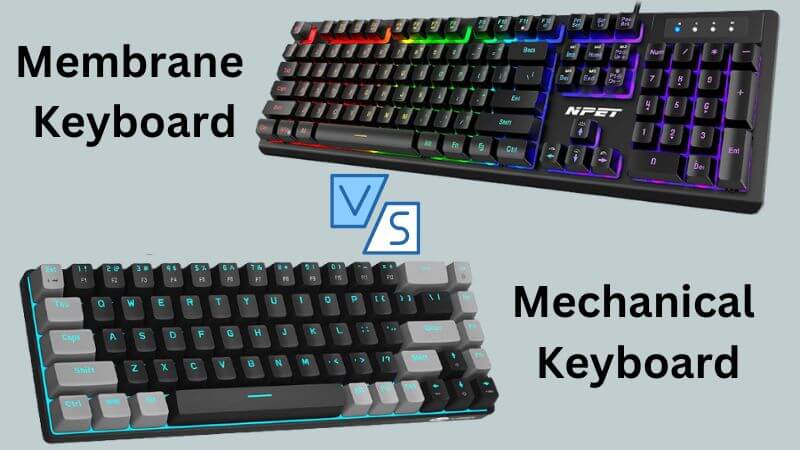When it comes to gaming, having the right keyboard can significantly enhance your gaming experience. Two popular keyboard types are mechanical and membrane keyboards. Each offers distinct advantages and features, making it crucial to understand the differences and choose the perfect gaming keyboard for your needs. In this article, we will explore the characteristics of mechanical and membrane keyboards, helping you make an informed decision.

1. Mechanical Keyboards:
Mechanical keyboards are known for their tactile feedback and satisfying typing experience. They utilize individual mechanical switches for each key, providing a distinct click or bump when pressed. This feedback enhances accuracy and responsiveness during gaming, allowing for precise inputs. Mechanical keyboards offer various switch types, including linear, tactile, and clicky, each providing a unique feel and sound. They also have a longer lifespan compared to membrane keyboards, making them a durable option for intense gaming sessions.
2. Membrane Keyboards:
Membrane keyboards, on the other hand, utilize a rubber dome or membrane layer beneath the keys. When pressed, the keys make contact with the membrane, registering the keystroke. Membrane keyboards are generally quieter and less tactile than mechanical keyboards. They are often more affordable and offer a softer typing experience. While membrane keyboards may not have the same tactile feedback as mechanical keyboards, they still provide a reasonable level of functionality for gaming purposes.
3. Gaming Performance:
Mechanical keyboards are highly regarded in the gaming community due to their responsiveness and precision. The tactile feedback and distinct actuation point allow for faster reaction times, essential in fast-paced games. The physical nature of mechanical switches enables gamers to perform complex key combinations with ease. Additionally, mechanical keyboards often offer advanced features such as anti-ghosting and customizable macros, further enhancing gaming performance.
4. Comfort and Ergonomics:
Ergonomics play a crucial role in long gaming sessions. Mechanical keyboards often offer better ergonomics with adjustable keycaps, wrist rests, and customizable layouts. The tactile feedback can provide a more comfortable typing experience and reduce typing fatigue. However, some membrane keyboards also incorporate ergonomic designs and wrist support, catering to users’ comfort needs.
5. Noise and Customization:
Mechanical keyboards are generally louder due to the audible click or bump produced by the mechanical switches. This sound can be satisfying for some gamers, but it may be distracting for others, especially in shared environments. Membrane keyboards, being quieter, offer a more discreet typing experience. Additionally, mechanical keyboards provide more customization options with various switch types and keycap designs, allowing gamers to personalize their setups to their preferences.
6. Budget Considerations:
Budget is an important factor to consider when choosing a gaming keyboard. Membrane keyboards are often more affordable, making them a budget-friendly option. Mechanical keyboards, especially those with premium switches, can be more expensive. However, they offer a longer lifespan, durability, and a superior gaming experience, making them a worthwhile investment for serious gamers.

Conclusion:
Choosing between a mechanical or membrane keyboard depends on your gaming preferences, budget, and personal typing experience. Mechanical keyboards offer tactile feedback, precision, and customization options, making them ideal for gamers who prioritize performance and durability. Membrane keyboards, with their affordability and quieter operation, can still provide a satisfactory gaming experience for casual gamers or those on a budget. Consider the typing experience, gaming performance, comfort, customization options, noise level, and budget when selecting the perfect gaming keyboard that will elevate your gaming sessions and provide a comfortable and responsive gaming experience.